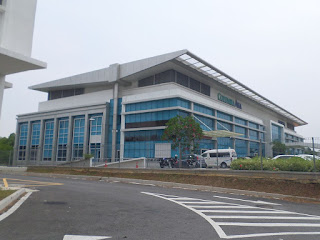all you need to know about enlarged prostate (BPH)
Prostate – a gland that produces the fluid to carry sperm during ejaculation. This gland is surrounded by the urethra, which is the tube to passes out urine out of the body.
Enlargement of prostate gland means the gland has increased by its size. It happens to almost all men as they get older.
Signs & symptoms
Most of the men with benign prostatic hyperplasia (BPH) do not show any symptoms. If symptoms are present, they are as follows:
· Weak urine flow
· Difficulty in starting urination
· Dribbling of urine
· Leaking of urine
· A sense of not fully emptying the bladder
· Frequent urination
· A strong desire to urinate, especially at night
· Pain with urination
· Blood in the urine.
Causes of prostate enlargement
The real cause of prostate enlargement is not known. Factors such as aging and changes in the cells of the testicles might play a major role in the enlargement of the prostate.
If the testicles are taken out from the man with BPH, the enlarged prostate begins to shrink in size.
Diagnosis & Tests
Your doctor might ask questions such as about your medical history and ask you to do a digital rectal exam the see the prostate gland.
Others tests you may have to undergo are listed below:
· Urine flow rate
· To check the amount of urine left in the bladder, you have to do post-void residual urine test after you urinate
· Pressure-flow tests to check the pressure in the bladder as you urinate
· Urine culture to check for infection
· Urinalysis to check for the presence of blood or infection
· Prostate-specific antigen (PSA) blood test to screen for prostate cancer
· Cystoscopy
Treatment & management
Once you are diagnosed with benign prostatic hyperplasia, your health keeper may not recommend immediate treatment if symptoms are mild. For severe symptoms both medical as well as surgical treatments are available.
Self-care for mild symptoms:
· Avoid alcohol and caffeine.
· Do not consume a lot of fluid all at once.
· Urinate when you first get the urge to urinate. Also, go to the bathroom on a scheduled time.
· Avoid taking over the counter sinus and cold medicines that have decongestants or antihistamines. These drugs can worsen the symptoms.
· Keep warm and do exercise regularly.
· Reduce stress.
Medical treatment
Several types of medications have been recommended for treating prostate enlargement. Sometimes, men with severe symptoms need treatment with a combination of given medications:
· Alpha-blockers, such as prazosin (Minipress), terazosin (Hytrin), or doxazosin (Cardura), relax the muscles in the prostate and may relieve symptoms. Recent alpha blockers, such as tamsulosin (Flomax), silodosin (Rapaflo), and alfuzosin (Uroxatral), are more commonly recommended since they have fewer side effects.
· Drugs such as 5-alpha reductase inhibitors, including finasteride (Proscar) or dutasteride (Avodart) can lead to shrinkage of the prostate.
· The phosphodiesterase-5 inhibitor tadalafil has also been recommended for the treatment of BPH.
Surgical treatment
Various surgeries are available to treat enlarged prostate:
· A common operation for enlarging prostate is transurethral resection of the prostate (TURP).
· A less common surgery called transurethral incision of the prostate (TUIP).
· Latest treatments include transurethral microwave thermotherapy (TUMT), interstitial laser coagulation (ILC), and transurethral needle ablation of the prostate (TUNA).




Comments
Post a Comment